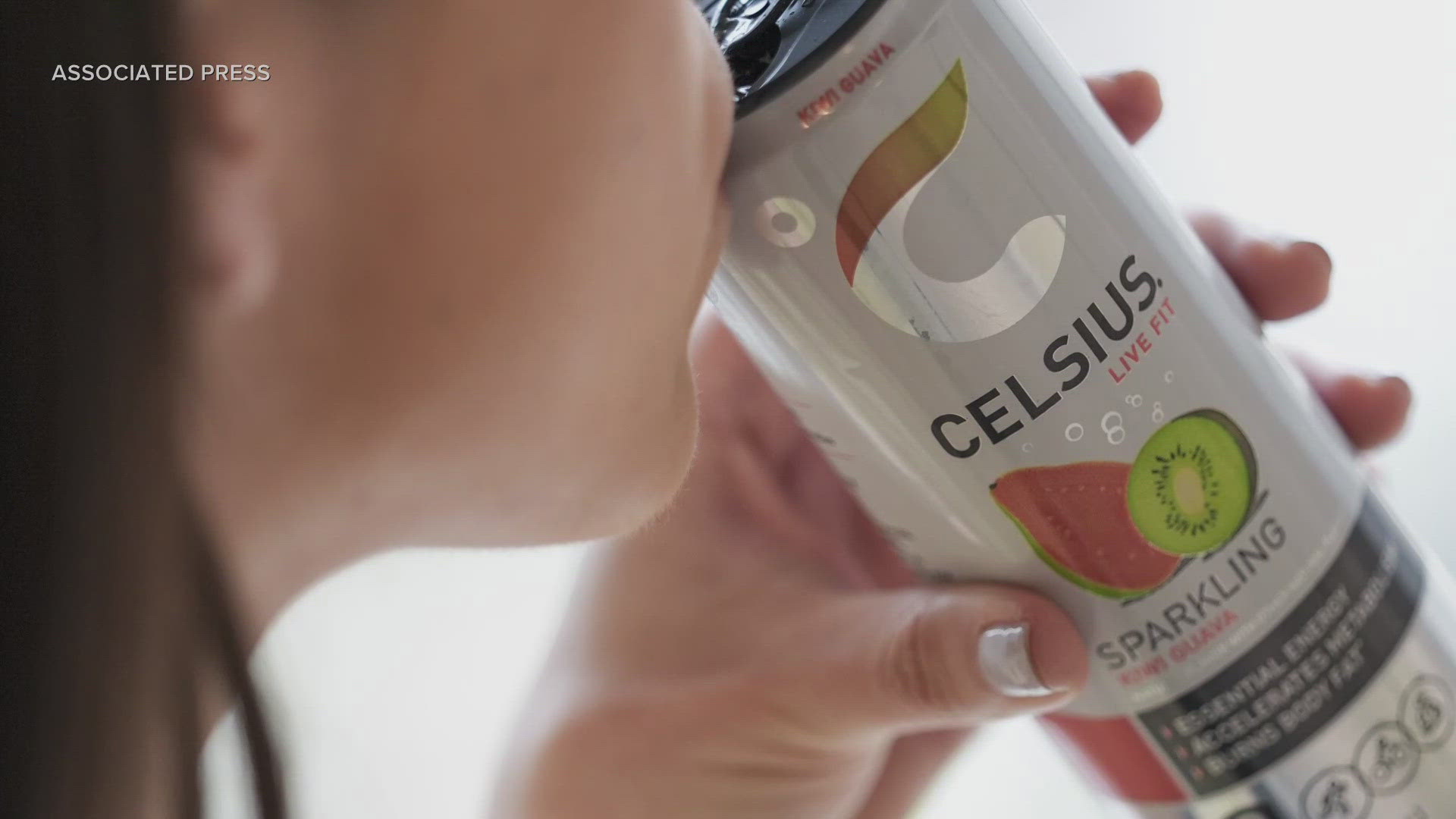TEXAS, USA — Caffeine sure helps with staying awake and keeping people energized. However, one energy drink is causing some concern across social media.
People claim the popular drink CELSIUS is putting them in the hospital with organ damage. There are also claims that it contains a highly toxic ingredient that can damage your liver.
That ingredient is green tea extract, which can be found in many energy drinks.
THE QUESTION
Can green tea extract be harmful to your liver?
OUR SOURCES
Michael Volk, Chair of Medicine at Baylor Scott & White and Amy Mersiovsky, Director and Chair of the Department of Nursing at A&M-Central Texas and Registered Nurse.
THE ANSWER
Yes, green tea extract that's found in energy drinks like CELSIUS can be harmful. It's best to speak with your doctor if you are concerned.
WHAT WE FOUND
Volk says green tea has been consumed for thousands of years.
"There are some health benefits," Volk told 6 News. "In terms of the liver patients who consume green tea regularly, they have lower levels of liver enzymes, suggesting less inflammation in the liver."
The extract is what could cause damage.
"When you get into concentrating it, such as a green tea extract, very, very strong doses, high doses that are found in many supplements, including energy drinks, that's been shown to be associated with supplement-induced liver injury," Volk added.
If you have too much for too long, it can result in a more serious liver injury.
"You can turn jaundiced," Volk said. "Some turn yellow, and in rare cases, it can even lead to liver failure."
CELSIUS also contains 200 mg of caffeine per can. Other drinks like Red Bull have 80 mg. Rockstar and Monster have 160 mg.
"How much of a fluid is in a particular can or serving can make it more problematic," Mersiovsky said.
Energy drinks aren't regulated by the FDA and CELSIUS says you should not drink more than two a day.
"They also don't recommend it for people who have health issues," Mersiovsky said. "I think this is a good wake-up call that they need to be really careful with those."
Volk also added there's lots of misinformation when it comes to product labels.
The best source is LiverTox, a National Institutes of Health website that has information about the risk of liver damage from supplements.
"I tell patients, if it's something that you recognize as food, then it's probably safe, such as, for example, a glass of green tea, but if it's something that is packaged in a pill form or some other artificial mechanism, then it may not be safe," Volk said.
More verifies from 6 News:

